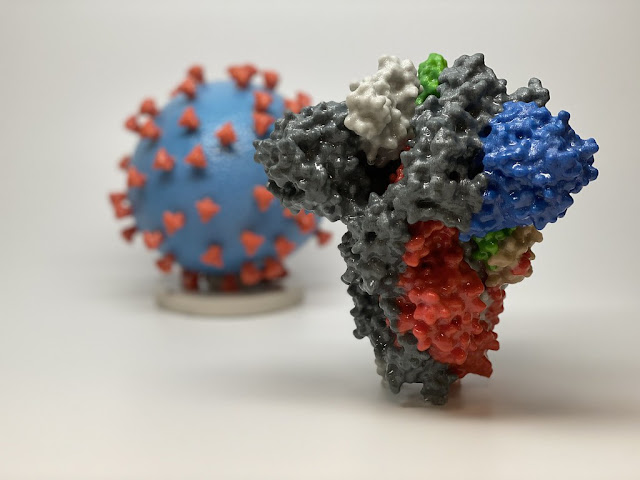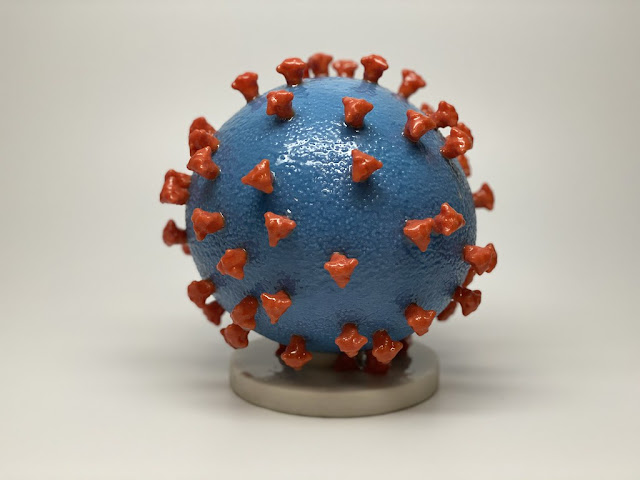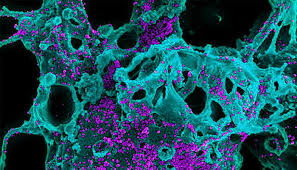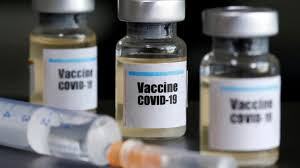Can the Coronavirus (COVID-19) happen again?
One of the most frequent problems since the emergence of the COVID-19 virus has been whether those who have it can get it a second time - and what it means for immunity.
Sir Patrick Valence, the government's chief scientific advisor, and Boris Johnson's chief medical advisor, Prof. Chris Whitty, both tried to reassure the public. People who once had the virus will develop some immunity, he said - and getting a contagious disease again is rare.
Japanese officials said that a woman who suffered from the virus, and was declared virus-free, had tested positive again last month after earlier questions arose.
Expert of Virology at Leeds University Prof. Mark Harris said revision was "unlikely" in the case, but added that "there is some evidence in the scientific literature for the persistent infection of Coronaviruses of animals (mainly in bats)."
When Valence was asked on Monday whether the Japanese case meant herd immunity was no longer obtained, he replied that some people catch infectious diseases a second time, but this is a rare occurrence. He said that there is no evidence to suggest that this would happen to Coronaviruses.
Prof. Whitty pointed out that with diseases, even if there is no long-term immunity, there is usually some short-term immunity.
Professor John Cohen, professor of emergence of infectious diseases at Brighton & Sussex Medical School, said: "The answer is that we don't yet know [about reinfection] because we don't have an antibody test for infection, though We will soon.
"However, it is very likely, based on other viral infections, that yes, once a person has an infection they will usually be immune and won't get it again. There will always be the odd exception, but this is definitely a Fair hope. "
The Centers for Disease Control and Prevention (CDC) states that it is not yet known whether patients can be resuscitated with COVID-19, but patients with a similar Coronavirus virus are reinforced, at least in the short term. Was unlikely to happen.
The immune response, including the duration of immunity to SARS-CoV-2 infection, is not yet understood. According to the CDC, patients with MERS-CoV are unlikely to be reinfected shortly after recovering, but it is not yet known whether similar immune defenses will be observed for patients with COVID-19 .
Although a concrete answer is not yet available, the head of the National Institute of Allergy and Infectious Diseases, Dr. Some leading experts in the country, including Anthony Fauci, believe that patients are likely to develop some degree of immunity to the virus.
If this virus acts like every other virus we know, once you are infected, it is better to clear the virus, then you will have immunity that will protect you from revision.
Once you have a COVID-19 infection, you cannot regain it, but there are always exceptions.
Martin Hibberd, Professor of Emerging and Infectious Diseases at the London School of Hygiene and Tropical Medicine, said, "However we need more evidence to believe that the people who have been recovered are again SARS-CoV- 2 is unlikely to be infected. "
In China, a recent study on monkeys found that once exposed to the virus at an early time, subjects developed immunity and at other times were unable to contract the virus.
According to the study, "monkeys combined with re-follow virologic, radiological, and pathologic findings did not show a recurrence of COVID-19, in the same way as without infected monkeys".
It is reasonable to predict that we will have some immunity. To say you will have lifelong immunity? We do not know yet. But it seems like it is a fair conclusion that you will be immune to the rest of the season.
"Said Joel Baines, a virologist at Louisiana State University. "There is going to be a period of immunity, and it can be as short as eight months to a year, and as long as several years."
In China, patients who had two negative tests and were discharged from a hospital were tested positive later.
"According to current protocols, patients who test positive for Coronovirus and are hospitalized must receive two negative tests 24 hours before discharge," Mahmoud Logman-Adham, MD, California-based life sciences firm Innofiphene it is said. Health. "In the case of Chinese patients, the patients had no symptoms and were showing signs of improvement."
Another patient from Japan has also developed marked symptoms and tested positive for COVID-19, the second time after all is clear.
It is understandable that people are twice as concerned about a serious illness and require repeat hospitalization and / or quarantine. While experts still do not know much about COVID-19, they have a deep knowledge of similar viral diseases.
Dr. "In general, patients make antibodies to the virus and become immune to repeated infections with the same virus," explains Logman-Adham. "So until an antibody test becomes available, we do not know whether the reported patients from China and Japan had antibodies against the virus - and were therefore protected from re-infection - or whether their There was a false-positive test. "
Current testing for Coronaviruses is based on polymerase chain reaction (PCR) amplification, which measures the number of copies of RNA (ribonucleic acid, a nucleic acid present in all living cells).
"Testing can simply confirm that viral RNA is present in large amounts, but this RNA may be a small piece of viral RNA and thus cause infection," Dr. Logman-Adham says. "Thus the test positive will be a false positive," especially if the virus copy number is less than a certain threshold. "
Collecting samples from multiple sites on the body, such as the nose, throat, feces, and blood, will increase the likelihood of detecting virus RNA. But this is done for research purposes only.
“To know if there are infectious viruses in the samples, they are placed in a petri dish that contains special cells and allows the cells to grow and multiply. If infectious viruses are present in a sample, the cells will become infected and die, ”Dr. Logman-Adham states. "Testing is cumbersome and time consuming, and it can also expose technicians to a dangerous virus."
According to scientific studies, there are no news reports, no test is perfect, and everyone's immune system is different.
Dr. "We all know by now that after COVID-19 infection, you can get it again," says Logman-Adham. "But there are always exceptions."
Please Stay Home Stay Safe
Sir Patrick Valence, the government's chief scientific advisor, and Boris Johnson's chief medical advisor, Prof. Chris Whitty, both tried to reassure the public. People who once had the virus will develop some immunity, he said - and getting a contagious disease again is rare.
 |
| Can the Coronavirus (COVID-19) happen again |
Expert of Virology at Leeds University Prof. Mark Harris said revision was "unlikely" in the case, but added that "there is some evidence in the scientific literature for the persistent infection of Coronaviruses of animals (mainly in bats)."
When Valence was asked on Monday whether the Japanese case meant herd immunity was no longer obtained, he replied that some people catch infectious diseases a second time, but this is a rare occurrence. He said that there is no evidence to suggest that this would happen to Coronaviruses.
Prof. Whitty pointed out that with diseases, even if there is no long-term immunity, there is usually some short-term immunity.
Professor John Cohen, professor of emergence of infectious diseases at Brighton & Sussex Medical School, said: "The answer is that we don't yet know [about reinfection] because we don't have an antibody test for infection, though We will soon.
"However, it is very likely, based on other viral infections, that yes, once a person has an infection they will usually be immune and won't get it again. There will always be the odd exception, but this is definitely a Fair hope. "
The Centers for Disease Control and Prevention (CDC) states that it is not yet known whether patients can be resuscitated with COVID-19, but patients with a similar Coronavirus virus are reinforced, at least in the short term. Was unlikely to happen.
 |
| Can the Coronavirus (COVID-19) happen again |
Although a concrete answer is not yet available, the head of the National Institute of Allergy and Infectious Diseases, Dr. Some leading experts in the country, including Anthony Fauci, believe that patients are likely to develop some degree of immunity to the virus.
 |
| Can the Coronavirus (COVID-19) happen again |
Once you have a COVID-19 infection, you cannot regain it, but there are always exceptions.
Martin Hibberd, Professor of Emerging and Infectious Diseases at the London School of Hygiene and Tropical Medicine, said, "However we need more evidence to believe that the people who have been recovered are again SARS-CoV- 2 is unlikely to be infected. "
In China, a recent study on monkeys found that once exposed to the virus at an early time, subjects developed immunity and at other times were unable to contract the virus.
According to the study, "monkeys combined with re-follow virologic, radiological, and pathologic findings did not show a recurrence of COVID-19, in the same way as without infected monkeys".
It is reasonable to predict that we will have some immunity. To say you will have lifelong immunity? We do not know yet. But it seems like it is a fair conclusion that you will be immune to the rest of the season.
"Said Joel Baines, a virologist at Louisiana State University. "There is going to be a period of immunity, and it can be as short as eight months to a year, and as long as several years."
 |
| Can the Coronavirus (COVID-19) happen again |
"According to current protocols, patients who test positive for Coronovirus and are hospitalized must receive two negative tests 24 hours before discharge," Mahmoud Logman-Adham, MD, California-based life sciences firm Innofiphene it is said. Health. "In the case of Chinese patients, the patients had no symptoms and were showing signs of improvement."
Another patient from Japan has also developed marked symptoms and tested positive for COVID-19, the second time after all is clear.
It is understandable that people are twice as concerned about a serious illness and require repeat hospitalization and / or quarantine. While experts still do not know much about COVID-19, they have a deep knowledge of similar viral diseases.
Dr. "In general, patients make antibodies to the virus and become immune to repeated infections with the same virus," explains Logman-Adham. "So until an antibody test becomes available, we do not know whether the reported patients from China and Japan had antibodies against the virus - and were therefore protected from re-infection - or whether their There was a false-positive test. "
Current testing for Coronaviruses is based on polymerase chain reaction (PCR) amplification, which measures the number of copies of RNA (ribonucleic acid, a nucleic acid present in all living cells).
"Testing can simply confirm that viral RNA is present in large amounts, but this RNA may be a small piece of viral RNA and thus cause infection," Dr. Logman-Adham says. "Thus the test positive will be a false positive," especially if the virus copy number is less than a certain threshold. "
 |
| Can the Coronavirus (COVID-19) happen again |
“To know if there are infectious viruses in the samples, they are placed in a petri dish that contains special cells and allows the cells to grow and multiply. If infectious viruses are present in a sample, the cells will become infected and die, ”Dr. Logman-Adham states. "Testing is cumbersome and time consuming, and it can also expose technicians to a dangerous virus."
According to scientific studies, there are no news reports, no test is perfect, and everyone's immune system is different.
Dr. "We all know by now that after COVID-19 infection, you can get it again," says Logman-Adham. "But there are always exceptions."
Please Stay Home Stay Safe


